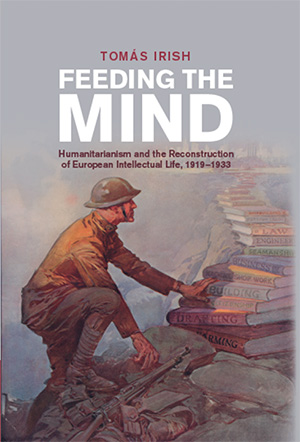‘The Most Deplorable Victims of the War’? European Intellectuals and the Humanitarian Crises of the Early 1920s
 Tomás Irish (University of Swansea) will give a seminar. Frederik Ørskov (University of Helsinki) will be the commentator.
Tomás Irish (University of Swansea) will give a seminar. Frederik Ørskov (University of Helsinki) will be the commentator.
Abstract
The Great War and the conflicts that followed it in the early 1920s left intellectual life in ruins in many countries. Famine and epidemic were rife in central and eastern Europe by 1919 and the Bolshevik Revolution and Russian Civil War led to a refugee crisis, while hyperinflation gripped countries like Germany and Austria. These events put millions of lives in Europe at risk and led to an unprecedented humanitarian effort to save lives. Humanitarian crises usually bring to mind the suffering of the most vulnerable in society; however, in post-1918 Europe, an unprecedented set of humanitarian initiatives took place that attempted to save the individuals and institutions that comprised European intellectual life, which form the subject of this paper. This version of humanitarianism not only provided food and medical aid to intellectuals at risk of death but also supplied them with books, laboratory equipment and other materials so that they could continue their creative work, as well as rebuilding institutions like libraries and universities that had been destroyed by the violence of total war. This paper will consider where intellectual relief fits into the wider history of early twentieth century humanitarianism by exploring how and why, in the early 1920s, ‘intellectuals’ were identified as a category that required bespoke assistance.
Short biography
Tomás Irish is an Associate Professor of Modern History at Swansea University, UK. A graduate of Trinity College Dublin (BA and PhD), he is the author of three books: The University at War 1914-25: Britain, France and the United States (2015), Trinity in War and Revolution, 1912-23 (2015), and Feeding the Mind: Humanitarianism and the Reconstruction of European Intellectual Life, 1919-1933 (2023).

